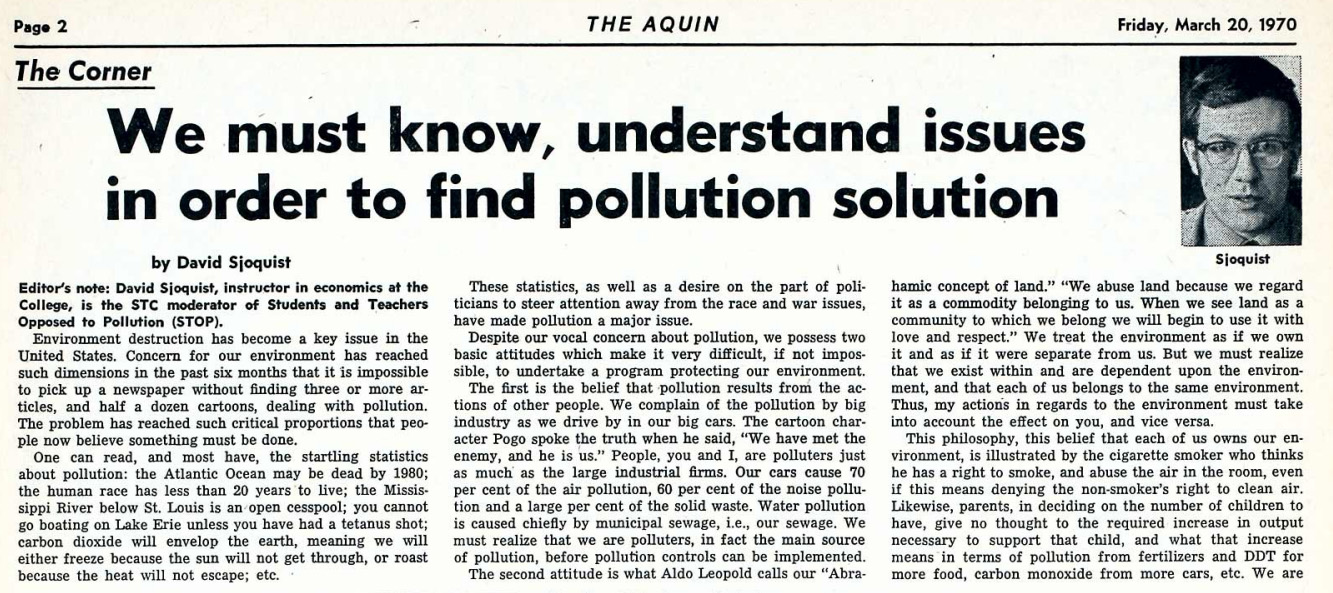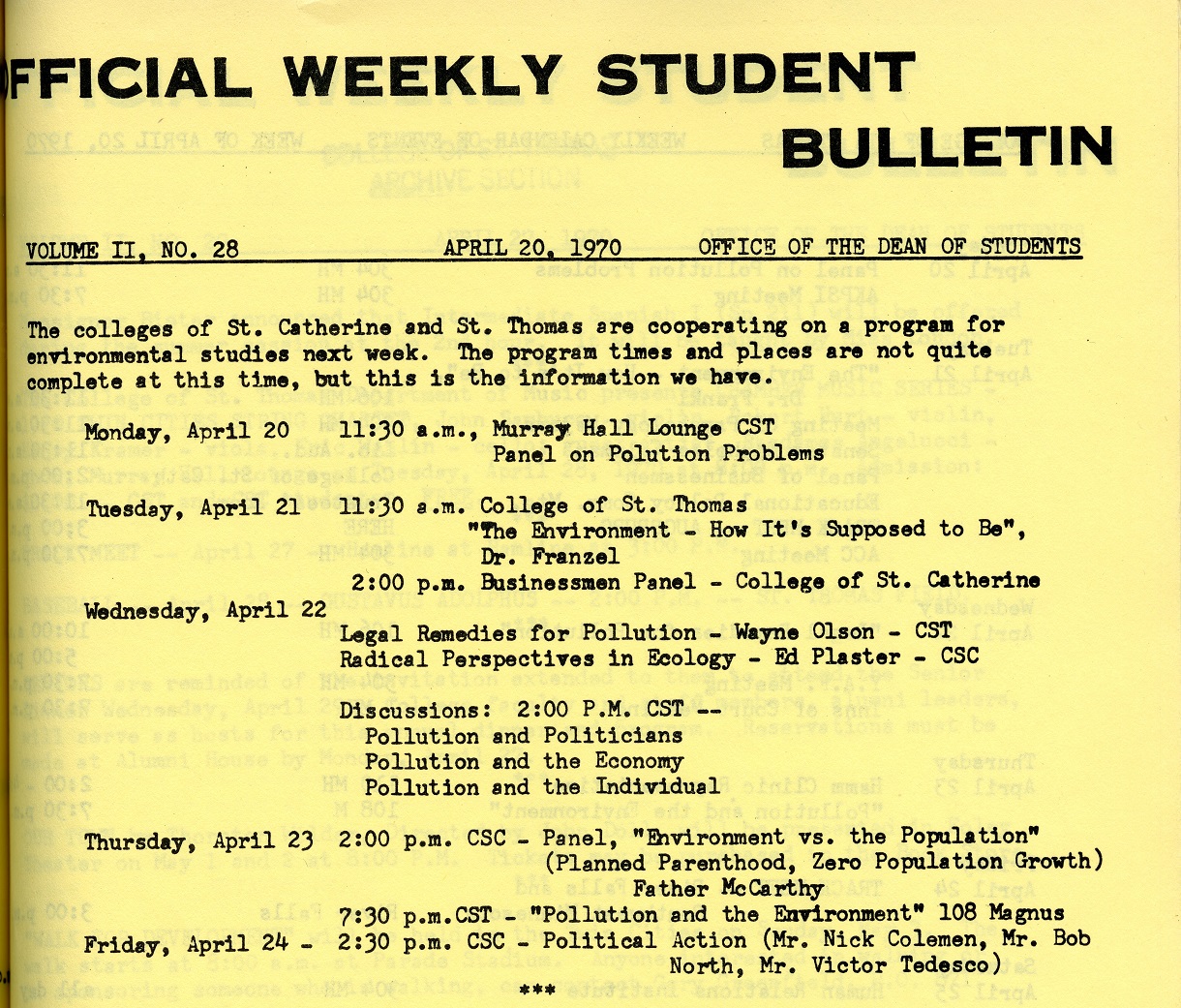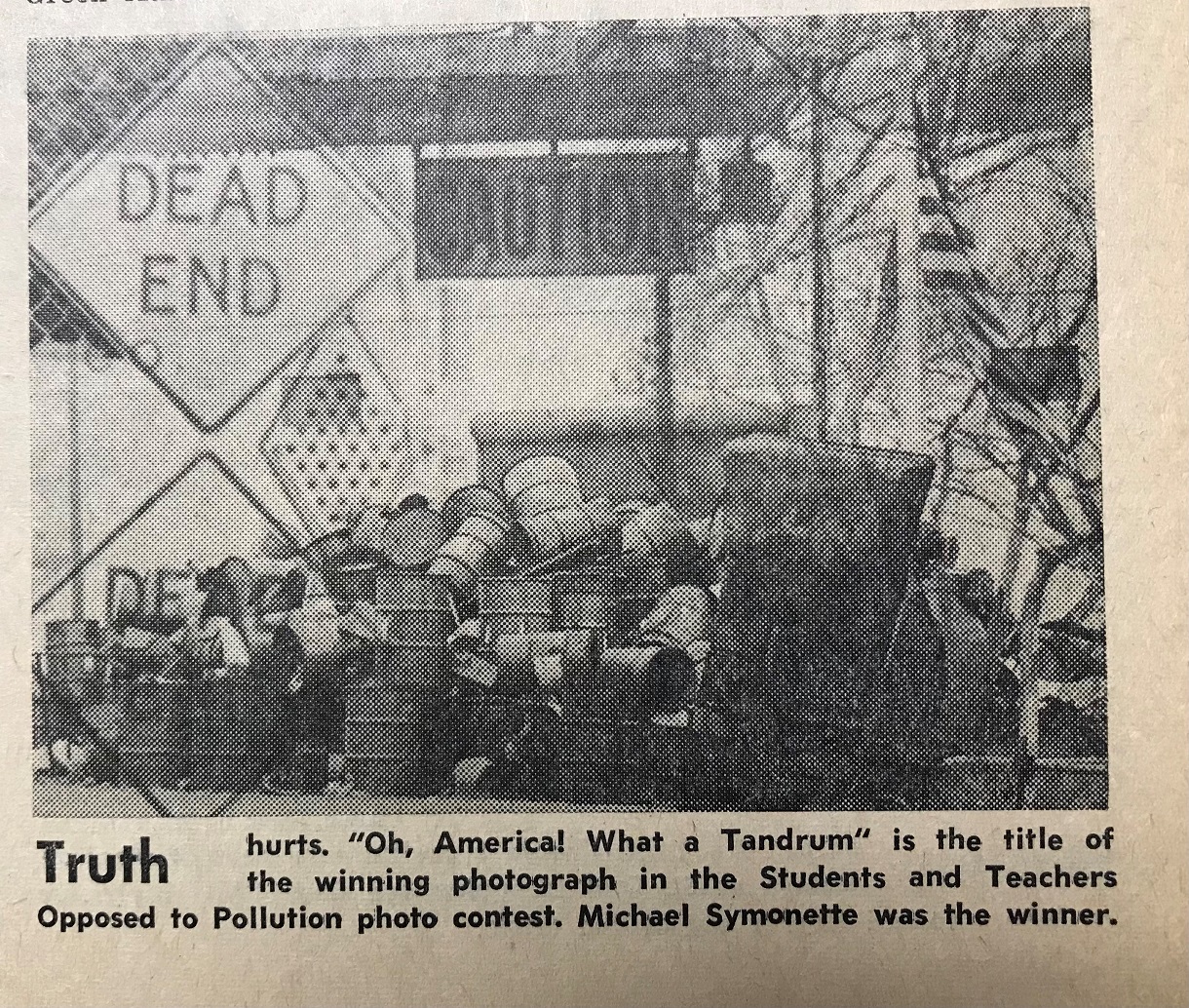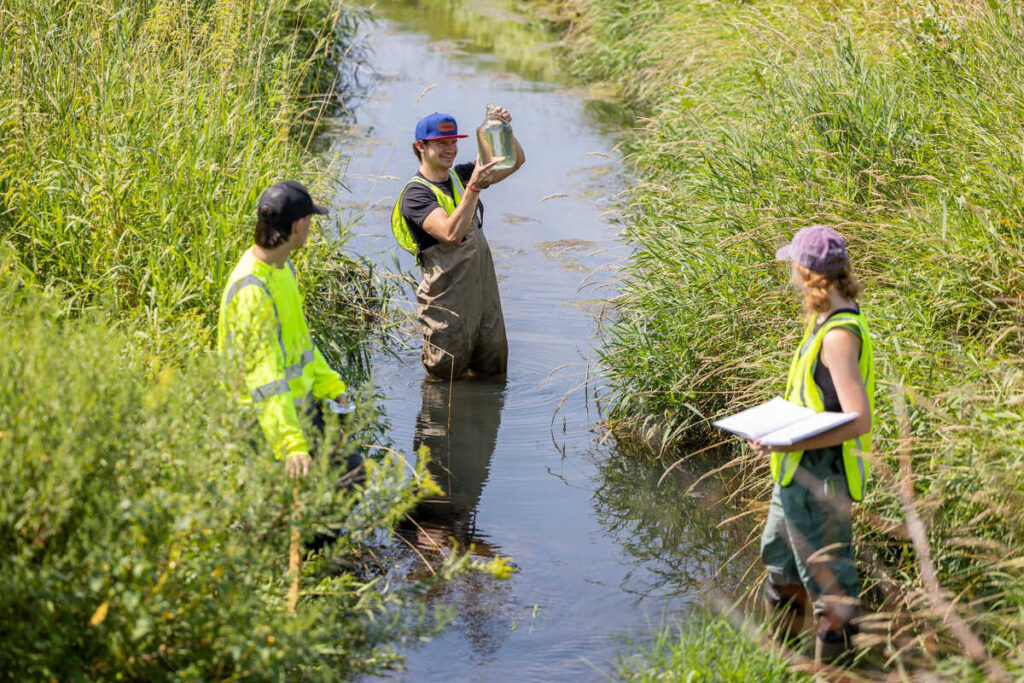Earth Day 2021 takes place this week. Reflecting on the first 50 years of this movement, take a look back at how the first Earth Day was observed on the St. Thomas campus.
The first Earth Day was scheduled for April 22, 1970. The event was the brainchild of U. S. Sen. Gaylord Nelson of Wisconsin, an ardent environmentalist. It was his vision to harness the same passion and energy young people displayed in the anti-war movement to raise public consciousness about the world’s environmental problems and force the issue into the national political agenda.
On the St. Thomas campus, mobilization efforts surrounding Earth Day were taken up by the joint St. Thomas/St. Kate’s chapter of STOP (Students and Teachers Opposed to Pollution). Led by David Sjoquist (a St. Thomas economics instructor) and Marilyn Griep (a junior student at St. Kate’s), the organization opened its membership to all students and faculty of both colleges.
In the lead-up to Earth Day, STOP undertook several educational projects on campus. Some of the activities spearheaded by the group included the organization of a letter-writing campaign to companies that polluted the air and waterways and the publication of editorials on the topic in the student newspaper, The Aquin.

To further attract student engagement on the topic, STOP also initiated a contest for the best photograph on the subject of pollution. The top two winners ($15 for first place, $8 for second place) had their photographs displayed on campus during Earth Week.
STOP also sponsored series of free classes led by Dr. Richard Meierotto, a St. Thomas biology professor and member of the Minnesota Environmental Control Citizens Association (MECCA). These sessions included educational lectures on how pollution “throws off the balance of the ecology system” along with films showing evidence of pollution in Twin Cities.
The pinnacle of STOP’s semester-long endeavors was the full slate of educational offerings offered during the week surrounding Earth Day. Programming included lectures and panel discussions on the scientific, business, legal, religious and political perspectives related to pollution and pollution control. The event attracted a variety of speakers from the college and the wider local community.

STOP appears to have been an active organization on campus for only one year. But the work of this group set the stage for the many sustainability activities across campus today.







